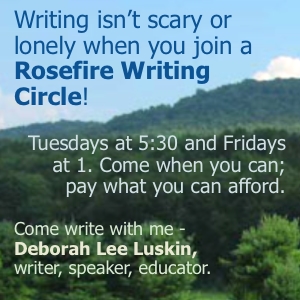 In the proposal for the Fantastic Wantastiquet festival, I am advancing the premise that the Connecticut River ought not to be regarded as a border in the ‘special case’ area of the arts and culture. Why?
In the proposal for the Fantastic Wantastiquet festival, I am advancing the premise that the Connecticut River ought not to be regarded as a border in the ‘special case’ area of the arts and culture. Why?
Well, did you ever wonder about why the river is regarded as a border? It’s not a border south of here in Massachusetts or Connecticut.
Furthermore, did you do a double-take the first time you learned that “New Hampshire owns the river” and Vermont doesn’t?
I was reminded of these issues when I saw ‘The Liberator’ on Netflix the other day, the 2013 film about Simon Bolivar, whose dream it was to create a united South America. Here is a quote from the film which I think is apropos our situation:
“My brothers, this is not a border … this is a river. When the Spaniards came, they called it a border, and they divided us. But we are all sons of America on both banks, Venezuela and New Granada. Don’t let them separate us! If one side falls, the other will too.
“This will be a tough battle. But by crossing the river, you will erase the borders. And those who don’t come back, those that have the honor and the vision to shed their blood for our cause; they will at least have the blessing to be buried in a land that is free, in a free country! Let’s go on!”
https://www.youtube.com/watch?v=CxYIB6yzrPA
I think it’s valid to say that by crossing the River with our arts and culture, and our community events, we may erase or at least weaken something that unnecessarily divides us. The Connecticut River is a border only because it was decreed as so by the English colonists in their conquest of what is now called New England. This was done in a time when there were not yet any bridges across the river. Let us keep building bridges, and building friendship with those on the other side! They are our brothers and our sisters!









River basin
I like a lot the notion of the crossing the river with our arts as building a bridge that links us with the other side.
The reality is then perhaps we should be a nation without borders. We are, after, all a country with border after border.
A border is sort of like a frame
First of all: The river is a border because you can’t get across without a boat or a bridge but we do have bridges, I’ve used them once in awhile and actually gone to NH. Really. It can be done right now.
Secondly: Maybe they don’t want to have anything to do with our “arts” and culture. Maybe they like their culture just fine. In that case would inflicting our arts and cultural festivals on them be considered an intrusion or perhaps even an invasion?
If we’re going to transport some of our “art” to NH, building those bridges so to speak, doesn’t the bridge run both ways. Will we be open to NH bringing some of their culture and art to us? Or is it a one-way bridge? Just wondering.
The Road to Brattleboro
I see you are describing here what I think can be seen as a border provided by nature, not ‘man’ made. In that sense, a natural frame is more apropos.
Your question about is this bridge meant to be a welcome two-way is probably the most salient point.
I did wonder if by using the Wantastiquet name, was it more of a ‘marketing attempt’ and connection with indigenous peoples? A cultural invasion or exchange may or not build transit interest, like say Walmart and the Liquor store does on “Brattleboro Road” in Hinsdale.
I will add that yesterday I met a woman in the blood lab who, in response to my question, was she from Brattleboro?, she reply, “I’m from East Brattleboro” and laughed. Of course I knew she meant Hinsdale.
Interesting questions about
Interesting questions about whether we are “bringing” our arts and cultural events to a place that perhaps doesn’t want or need them. And, if we would, indeed, welcome similar transport of New Hampshire’s arts and events to this area would that strengthen each other’s culture and arts or dilute it into something that is unrecognizable to both states? Because this country has a habit of going where we aren’t necessarily wanted and attempting to force our values and way of life on people who aren’t interested in assimilating to our ways, I’m wary of any attempt- even one proposed in good faith- of bringing our way of life via our arts and culture- to another state. Certainly, both NH and VT have long histories of wonderful artists and craftsmanship; of entertaining and valuable cultural events. These kinds of things are what make each town, each city, each state unique. Perhaps we should ask New Hampshire if they would like us to bring our uniqueness to their state. We already share in each other’s events; many Brattleboro residents have delighted in the Pumpkin Festival over the years and I imagine the crowds watching our Heifer Stroll contain more than a few New Hampshire citizens. Maybe a little caution in our attempt to ” bring” should be exercised.
A less idealized view of Simon Bolivar
In an unsympathetic biography titled Bolivar y Ponte, Simon published in the New American Cyclopedia, Karl Marx criticized much of Bolívar’s life. Marx begins saying that Bolívar was born to a family of “creole nobility in Venezuela” and that similar to the “custom of wealthy Americans of those times, at the early age of 14 he was sent to Europe”. Throughout Marx’s piece, he explains how Bolívar abandoned his troops multiple times as well. Marx also explains how Bolívar had to be persuaded by his cousin Ribas to return to fight against the Spanish after staying at Cartagena. Marx then explains that after arriving in Caracas in 1813, Bolívar’s “dictatorship soon proved a military anarchy, leaving the most important affairs in the hands of favorites, who squandered the finances of the country, and then resorted to odious means in order to restore them”. At the conclusion of the biography, Marx uses Ducoudray Holstein’s description of Bolívar.[31
]
According to Beddow and Thibodeaux, Marx called Bolívar a “[f]alsifier, deserter, conspirator, liar, coward, and looter” stating that Marx dismissed Bolívar as a “false liberator who merely sought to preserve the power of the old Creole nobility which he belonged”
A "Road to Brattleboro Arts Festival" more apropos?
In addition to my philosophical and other prose writings, I have long been a creative writer and lyricist and musician as well. Arts, being big for me and the town I lived nearly 10 years, I naturally, like a flowing river, gravitated to John’s idea. But the more I look around the bend and see the philosophy behind it though, I feel it’s not what I personally would encourage.
The reality is, border or no border, Wantasiquet simply isn’t part of Vermont. The view of it across the “Connecticut River” – any more than the flowing river that washes our shores, gives Brattleboro or any part of Vermont any particularly strong claim.
But after reading John Wilmerding’s Bolivar quote I am redoubled in my less inclined feeling to get on board. Even the obvious ‘conquering’ intent of this warrior general disturbs me. In Bolivar’s attempt to free Venesuela and “New Granada” with bloodshed, at least, though, those who didn’t end up buried, the traditional and cultural divides found in “Colombia, Ecuador, Panama, Guyana, southwestern Suriname, parts of northwestern Brazil, northern Peru, Costa Rica and Nicaragua” were ignored by this aristocratic man.
“…Some analysts also consider that these measures {of unification) reflected a degree of local traditions that eventually contributed to the differing political and national differences among these territories once they became independent in the nineteenth century and which the unifying efforts of Simón Bolívar could not overcome.”(wiki)
In this light, the traditional and cultural divide of these two states should not be “regarded as a border in the ‘special case’ area of the arts and culture” to be overcome.
Maybe a “Road to Brattleboro Arts Festival” would be more apropos that continues the long historical tradition of the arts in “Our Town.”